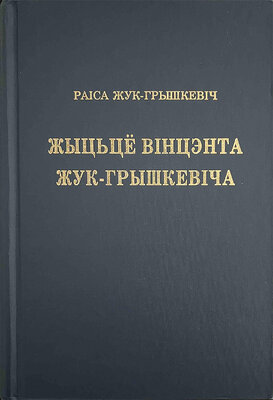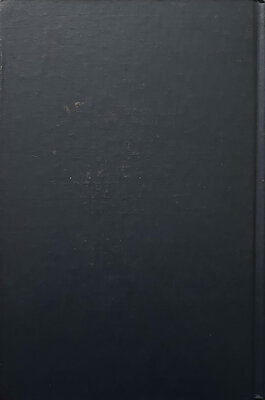Жыцьцё Вінцэнта Жук-Грышкевіча
Раіса Жук-Грышкевіч
Памер: 798с.
Таронта 1993
We may agree that it is very difficult to list precisely all the different ethnic groups in such a mixed population as Canada’s. But the question is how far we can afford this lack of precision. In some cases, the figures for Canadian censuses of population present very uncertain results. If we compare the general figures for some ethnic groups with figures by religious denominations, we can notice distinct discrepancies. We can take as an example the Russian figures from the 1961 census. It shows us that this group actually consists of several ethnic groups of which the Russians proper formed a minority. In his above-mentioned work, Dr. Kaye came to the same conclusion in analyzing the religious affiliations of the Russian origin group from the 1951 census.12
The total figure for the Russian ethnic group according to the census of 1961 is 119,169.13 Let us see now how this group looks when broken down by religious denominations.
Total number of Russians 119,168
Anglican 4,341
Baptist 3,468
12Op. cit., p. 307.
13Canada, Dominion Bureau of Statistics, Census of Canada 1961. (Ottawa, 1962), Vol. I, Table 110.
382
Greek Orthodox 13,761
Jews 23,461
Lutheran 8,237
Mennonite 9,415
Pentecostal 1,011
Presbyterian 1,325
Roman Catholic14 16,644
Ukrainian Greek Catholic 1,180
United Church 15,981
Other 20,344
We know that Russians, with the exception of a small number of converts, are Greek Orthodox. But as the figures show there are only 13,761 Russian Greek Orthodox in the whole number of 119,168. We can consider the 20,344 “Others” as Dukhobors - definitely Russian - and can add 26,126 of different Canadian Protestant denominations. But what of the remainder? This includes 16,644 Roman Catholics; 9,415 Mennonites; 8,237 Lutherans and 23,461 Jews. Are these Russians? Possibly a small fraction are but not all 57,757. And how can we interpret the fact that there are only 13,761 Greek Orthodox and 16,644 Roman Catholics in the Russian group? From this example we can see that in some cases Canadian censuses of population are quite a distance from the real figures for the Canadian ethnic groups.
There are some difficulties in preserving Belorussian origin on Canadian citizenship paper, too. The trouble is that in many cases, clerks who fill in applications and prepare the papers, refuse to recognize the unfamiliar name of Belorussia and put instead the countries under the rule of which were the applicants born - Poland or Russia. Interviews with some members of the Belorussian Canadian Alliance are very convincing. To mention only a few: in Toronto, 1959, Mr. J. Baran, despite his insistence that his birthplace was Belorussia, was marked in Canadian documents as of Polish origin. Mr. N. Prakopchik of Cobourg named his birthplace “Belorussia” but, because he served in the Polish army, “Polish origin” was written in his document. Against their insistence that they were of Belorussian origin Mrs. N. Baranovich (Toronto) was marked as Russian, Mr. M. Ratchicki (Toronto) as Polish, and so on. Other examples are A. Protas (Stratford), N. Silvanovich (Toronto)
14A11 emphasis is mine, V. Z.-H.
383
and B. Lischonak (Oshawa). We could expand this list much more. Others - Mr. A. Monid (Brantford) succeeded in preserving his Belorussian origin in Canadian documents because in his previous French document his origin was stated to be Belorussian.
There were some more dramatic cases. Mr. K. Akula, the Belorussian writer and one of the founders of the Belorussian Canadian Alliance, before becoming a Canadian citizen found it necessary to travel to the States and applied for a Canadian temporary travel document. In spite of his protest, Poland was put as his birthplace instead of Belorussia. Because of his urgent need for this document, he could not afford to refuse it. When in 1954 he applied for Canadian citizenship a city clerk again intended to write in Poland as his birthplace. But this time he refused to accept the document, and after some time the clerk conferred with a higher official and agreed to put in Belorussia.
Something similar happened to Mr. L. Karyba in Toronto. In September 1966 he refused to accept the certificate of Canadian citizenship for the same reason. Again a higher official had to intervene and told him to wait two weeks for correction. And indeed after two weeks he received a corrected document.
How do Belorussians themselves feel in such situations? In the past they could not express their national identity under Polish rule. The Bolshevik rulers tried to russify them, and some Belorussians, because of their national convictions, even had to endure Russian forced labour camps. After the end of World War II many Belorussians in Germany were chased by the Soviet Repatriation Commission who wanted to force them to return. And after they came to such a free country as Canada they never expected that even here they would have difficulty in preserving their national identity.
I do not intend to insist that Belorussians are not listed in Canadian statistics only because of ignorance about them and some technical disadvantages in questioning. I know that the old Belorussian so-called “dollar” immigrants had not enough national consciousness and did not care at all how they were listed. I know that many Belorussian immigrants accepted alien identities - Russian or Polish, as they were taught for years by Russian or Polish teachers, priests and officials in the old country and by the Communist propaganda in Canada. But we can not dismiss other causes which obstruct the expression of Byelorussian identity for those who are proud of it.
384
Maybe the question of how Belorussians are listed in Canadian statistics is not so important; they are Canadians now anyway. But we have to keep in mind that Canada is not a melting pot. As distinguished Canadian statesmen believe, the basic strength of Canada is diversity in unity - diversity in the cultural heritage of different ethnic groups and unity in the common rich Canadian culture. From this point of view, it is important indeed to secure an expression of identity for all ethic groups, to give an equal chance to all of them, big and small, better known or less known. Canada, our new homeland is big, beautiful, rich and a free country. It is a country which gives equal rights, equal opportunities and equal chances to every citizen. That is why the question of how Belorussians are listed has some importance.
Перапіс насельніцтва Канады - Цэнзус 1971
Чарговы перапіс - Цэнзус - насельніцтва Канады прыпадаў на 1 чырвеня 1971 году. Др. Вінцэнт Жук-Грышкевіч вырашыў правесьці акцыю, каб беларусы па-давалі ў апытальніках Цэнзусу сваё беларускае, а не чу-жое паходжаньне. Ен скамунікаваўся з Dominion Bureau of Statistics, атрымаў ад іх адпаведныя матарыялы й прыга-таваў ад імя Каардынацыйнага Камітэту Беларусаў Кана-ды, і ў супрацоўніцтве зь ім, заклік да беларусаў наступ-нага зьместу:
КААРДЫНАЦЫЙНЫ КАМІТЭТ БЕЛАРУСАЎ КАНАДЫ
Ў СПРАВЕ ПЕРАПІСУ НАСЕЛЬНІЦТВА КАНАДЫ -ЦЭНЗУС 1971
Суродзічы беларусы!
1 чырвеня 1971 г. адбудзецца чарговы перапіс -ЦЭНЗУС - насельніцтва Канады. Ён абавязковы для ўсіх жыхароў - згодна з дзяржаўным правам Статыстыкс Акт.
Пэрсанальныя дадзеныя перапісу будуць засакрэча-ныя. Паводле Статыстыкс Акт усе пэрсанальныя дадзе-ныя, якія вы падасьцё пра сябе, ці пра сваю сям’ю патрэб-ны толькі для статыстыкі. Яны будуць трымацца ў тайні-цы й ніхто, нават дзяржаўныя інстытуцыі, ня будуць
385
мець да іх доступу, апрача працаўнікоў статыстычнага бюра, якія робяць статыстыку. Гэтыя-ж працаўнікі склалі прысягу, што не дапусьцяць нікога да пэрсанальных да-дзеных перапісу, і знайшліся-б пад суровай адказнасьцяй, калі-б парушылі прысягу.
Удзельнікі ў перапісе гэта толькі статыстычныя адзінкі, а іх імёны й прозьвішчы патрэбны толькі на тое, каб ня зблытаць хто мужчына, а хто жанчына, каб не па-лічыць тую самую асобу 2 разы й каб нікога не прамінуць.
Гэта будзе самаперапіс, бо кажны сам будзе выпаўняць апытальнік (квэшчэнэр). Каб дапамагчы ў выпаўненьні апытальніка, падаём тут наступныя парады:
Запазнайцеся добра прынамся зь першымі дзьвюма ба-чынамі інструкцыі, якую атрымаеце з апытальнікам. 3 рэшты інструкцыі карыстайце пры кожным незразуме-лым пытаньні. Пытаньні, што адносяцца да нацыяналь-насьці - беларусы выпаўняюць такім чынам:
Page 2 (бачына 2) - Question 5 - Mother tongue (родная мова)
У вольнай лінейцы трэба пісаць - BYELORUSSIAN
Page 6 (бачына 6) - Question 11 - Where were you born? (дзе нарадзіліся?)
Трэба пісаць - BYELORUSSIA
Question 15 - To what ethnic or cultural group do you or your ancestors belong? (Да якой нацыянальнай групы вы ці ва-шы продкі належалі?)
Трэба пісаць - BYELORUSSIAN
Question 17 - What language do you most often speak at home now? (Ha якой мове вы найбольш гаворыце дома?)
Калі гаворыце пабеларуску, пішыце - BYELORUSSIAN
Дзеля розных прычынаў некаторыя беларусы былі за-пісаны ў дакумэнтах і перапісах пад іншымі нацыяналь-насьцямі (расейцамі ці палякамі), а не беларусамі. Інакш было запісана іхняе паходжаньне - замест Беларусі (Расея ці Польшча), а ня рэдка й іхняя родная мова была ўпіса-на інакш, як беларуская. Мусім старацца, каб больш гэ-тых памылак не паўтаралася. Няважна, як хто раней быў 386
запісаны, важна тое, каб кожны з нас сам цяпер запісаў сябе правільна. Зацікаўлены ў гэтым ня толькі мы - бела-русы, але й канадыйскія ўлады. Ходзіць аб тое, каб статы-стыка была правільная наагул і правільная ў нацыяналь-ных, моўных, культурных і іншых адносінах. Толькі з правільных дадзеных можна рабіць правільныя выснавы, якія карысна адаб’юцца й на нашым жыцьці. Вось чаму Каардынацыйны Камітэт Беларусаў Канады ўвайшоў у паразуменьне й супрацоўніцтва з Домініон Бюро оф Ста-тыстыкс пры правядзеньні Цэнзусу (перапісу) 1971. Зьвяртайцеся да нас ува ўсіх справах перапісу. Наш адрас:
129 Emerson Ave., Toronto 172 Tel. 537-7163
Торонто, травень 1971
Каардынацыйны Камітэт
Беларусаў Канады
Заклік гэты ў беларускай і ангельскай мовах быў шы-рока распаўсюджаны, сярод беларусаў і канадыйцаў бела-рускага паходжаньня па Канадзе. Такая практыка рас-паўсюджваньня падобнага зьместу зваротаў да беларусаў і канадыйцаў беларускага паходжаньня праводзіцца Каар-дынацыйным Камітэтам Беларусаў Канады кожныя пяць гадоў перад Цэнзусамі Канады.
 КНІГІ ОНЛАЙН
КНІГІ ОНЛАЙН


